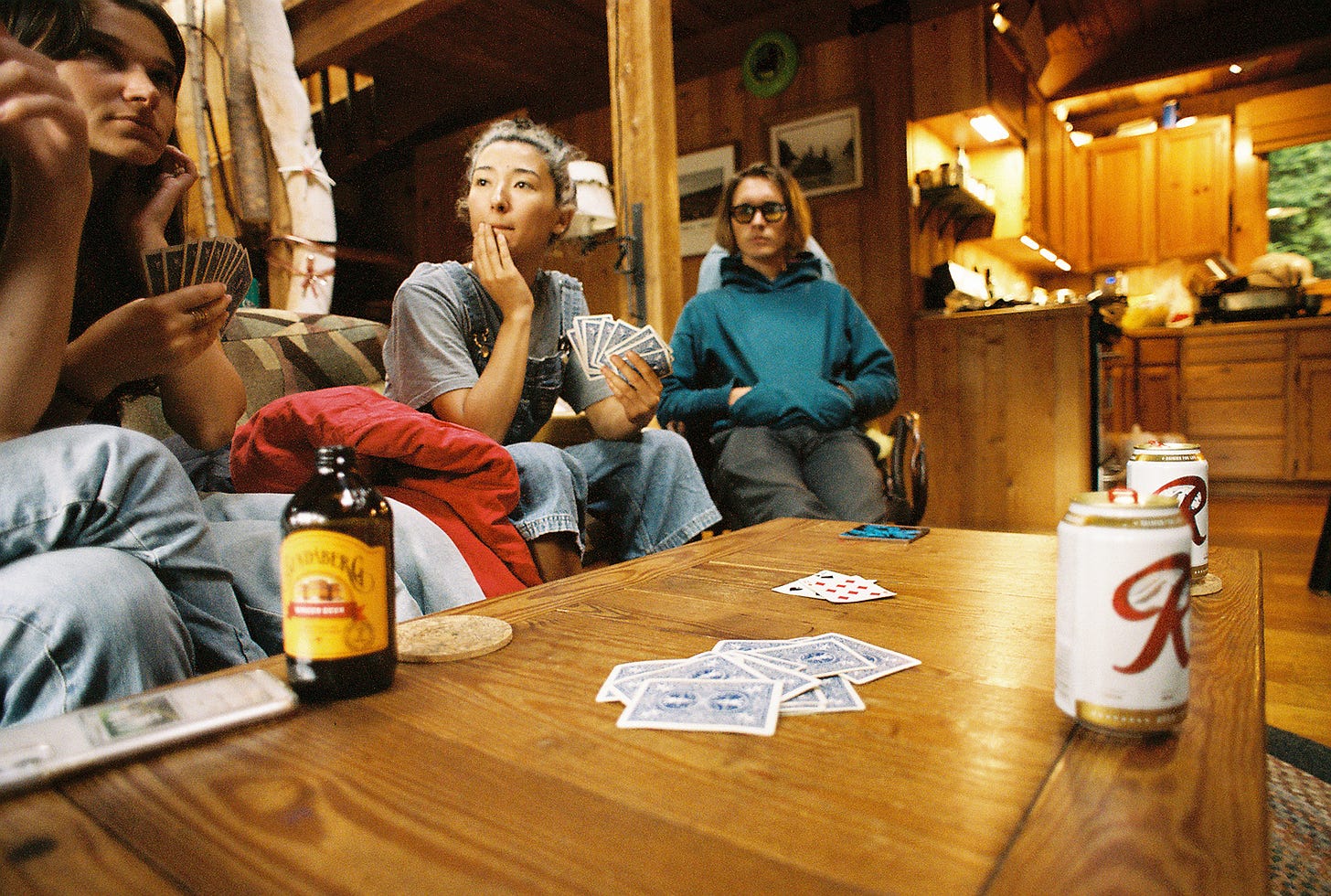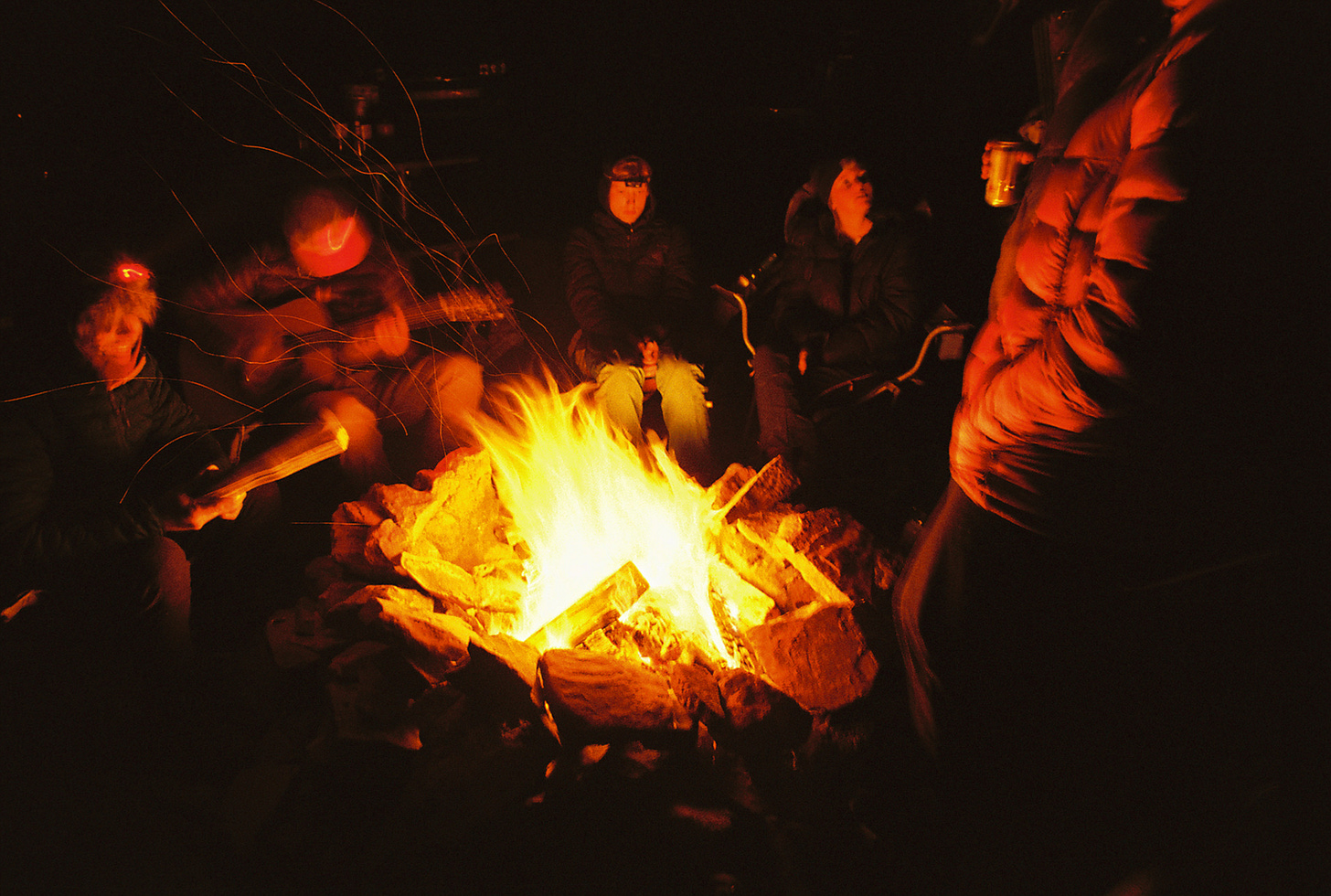Two months ago, in my personal journal wrote a short list of things I would do if I had more time, reproduced here verbatim:
Sit on my front porch in a foldable chair in the sun and look at clouds. No music, no books—chatting with friends or roommates in person preferred, on the phone allowed.
Make a dent in the growing pile of books on my bedside table.
Write letters to some friends and family.
Learn how to sew buttons back onto shirts.
Go rock climbing.
Write more in my personal journal.
Write more blog posts.
Design stupid stickers related to niche inside jokes and mail them to my friends with no context.
Become a regular at the coffee shop near my house.
Play more board games.
Physical activity, community, and thinking. A concise summary of the good life. Notably, these things are all free, or close to it.
This exercise reminded me of an essay that my social studies teacher in high school shared with the students in his AP Government and Politics class: David Brooks’ The Haimish Line.
Haimish, as defined by Brooks, is “a Yiddish word that suggests warmth, domesticity and unpretentious conviviality.” His essay proposes the existence of an “invisible Haimish Line.” As people get richer, they tend to spend their new wealth on more privacy, bigger spaces, and luxury at the cost of that which is Haimish; thus, “You’ll find multiple generations at a Comfort Inn breakfast area, and people are likely to exchange pleasantries over the waffle machine. At a four-star hotel’s breakfast dining room, people are quietly answering e-mail on their phones.”
Haimish is the difference between your favorite dingy dive bar and a craft cocktail lounge. Put in a context my friends would understand, it’s storm-chasing at a rustic motel near Wolf Creek drinking PBRs instead of a glitzy weekend of après-ski espresso martinis in Vail. You’re drawn to choosing the objectively “worse” experience because there’s something ineffable to it that makes it more… haimish.
I often wondered why my teacher had shared this essay in an AP Government and Politics class. It caught my interest, sure enough, considering I’m sitting here writing about it a decade (!) later. But how did it relate to the objectives of the class... at all?
It didn’t. The essay does not relate to the College Board’s curriculum. It had nothing to do with structures and functions of the U.S. government, the political behavior of its citizens, and the legal principles that shape American politics. Rater, it related to my teacher’s goal of nurturing thoughtful students, and I’m thankful that he had the chutzpah to prioritize that over the top-down pressures of pedagogical optimization.
We all walk on a hedonic treadmill, and at first glance this is both a blessing and a curse.
The blessing: people are resilient and can return to a happiness set point quickly, even after big negative shocks.
The curse: improvements in material well-being rarely translate into more happiness because your expectations and desires rise commensurate with your material gains.
Brooks again:
People are often bad at knowing how to spend their money — I’ve been at least as bad as everybody else in this regard. Lottery winners, for example, barely benefit from their new fortunes. When we get some extra income, we spend it on privacy, space and refinement. This has some obvious benefits: let’s not forget the nights at the Comfort Inn when we were trying to fall asleep while lacrosse teams partied in the hallways and the rooms next door. But suddenly we look around and we’re on the wrong side of the Haimish Line.
Perhaps the supposed downside of the hedonic treadmill is really another benefit. You don’t need to spend lots of money to be happy because you can’t spend lots of money to be happy. Remember my list above.
I’m already seeing myself and my friends drifting toward the other side of the Line. After a ski weekend in Steamboat last winter, having crammed ten people into a three bedroom Airbnb, a few of us swore we were done: no more bed-sharing; no more gear taking up so much space you can’t walk without knocking over skis and falling over duffels; no more competing to cook in chaotic conditions.
So, yes, I may spring for my own bed for next January’s trip. But if and when I do, I’ll be sure to pull out my lifestyle compass to do a bit of hedonic orienteering. Something warm is lost when your crew isn’t all together, forced into the same common space by necessity even at the cost of sleep and some sanity.
Stay south of the Haimish Line, friends.
Photos by Andrew Pinkham.





This was a great one. And timely (for me). The beauty of relationship and community can become so easily forgotten amidst the pressure to catch up, keep up, or get ahead through material gain.
Simple reminder to call and write to my parents :) Thanks for sharing!
Love this one. Feels particularly relevant in this chaotic season of life. Stay south of the Haimish Line… but also “splurge” on the private bed on the next ski trip, you can do both :)